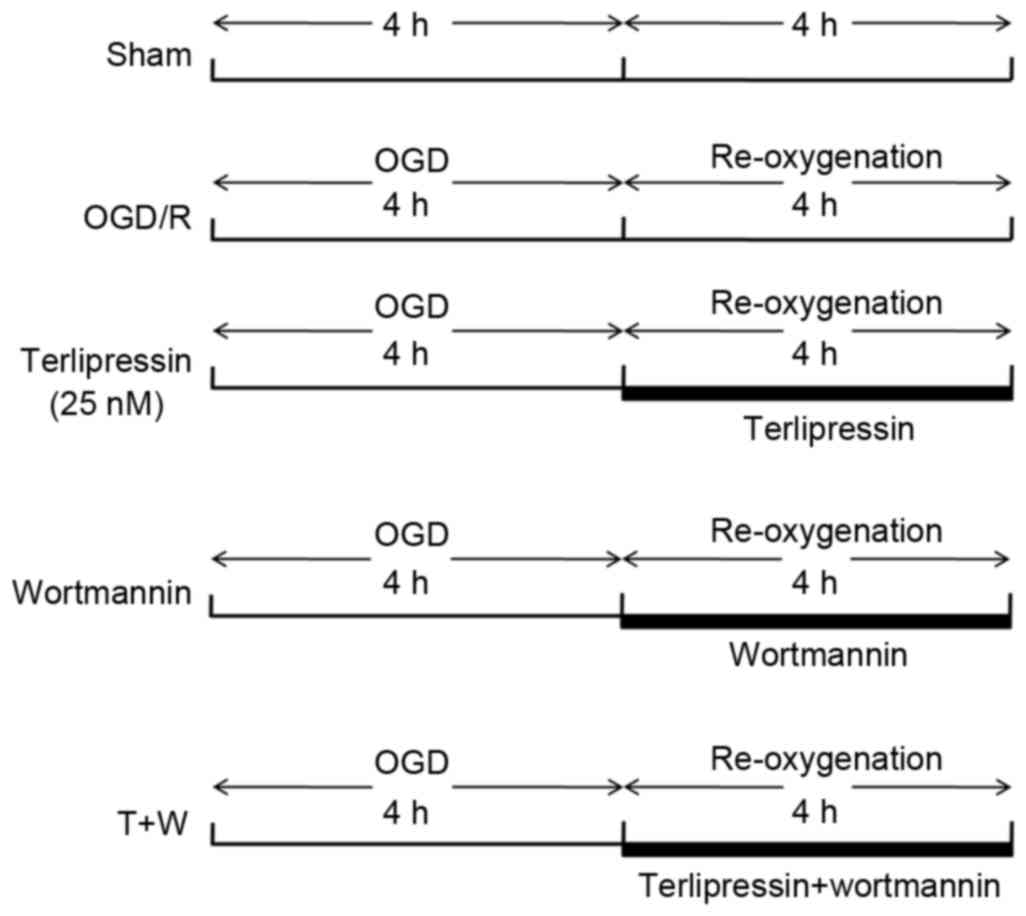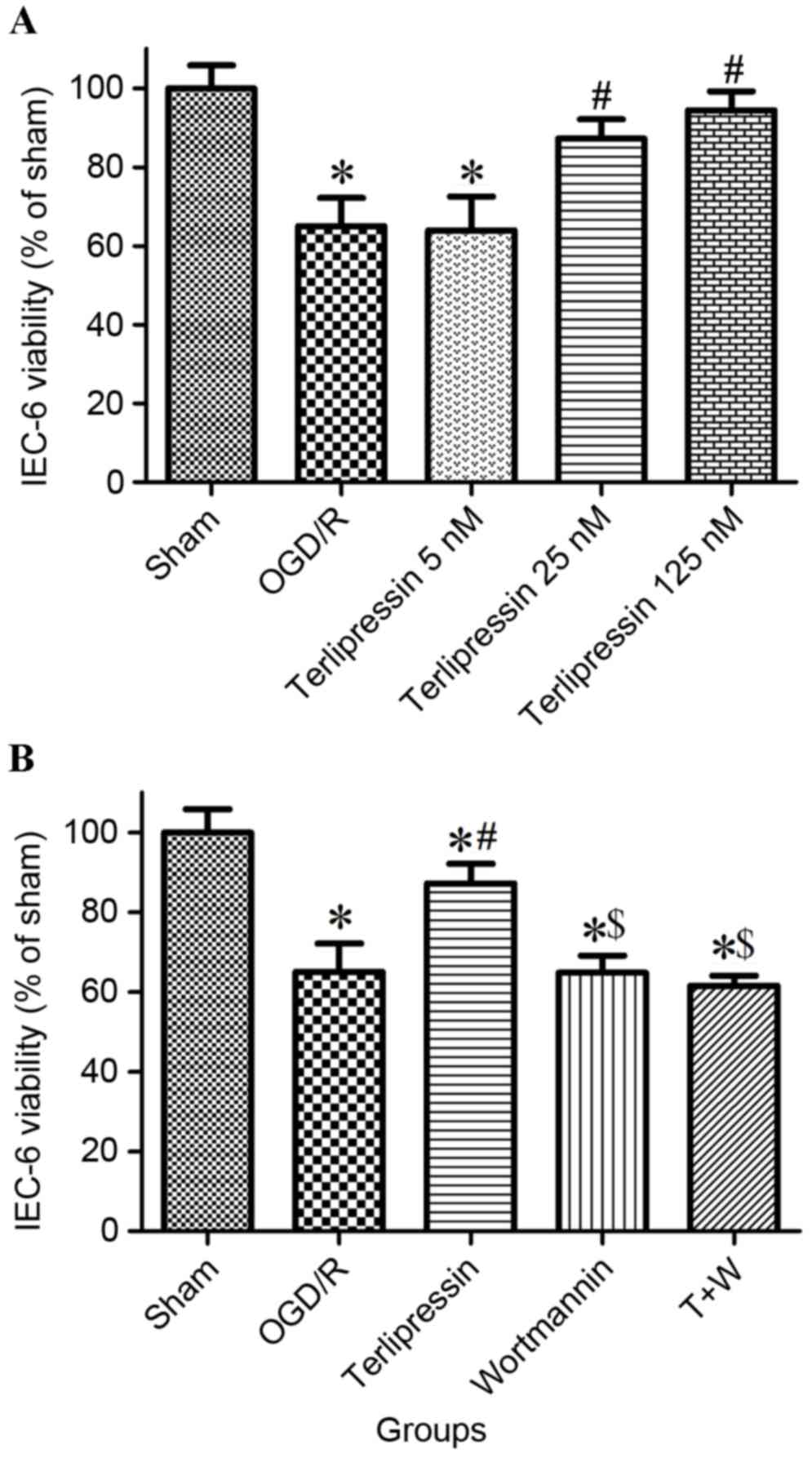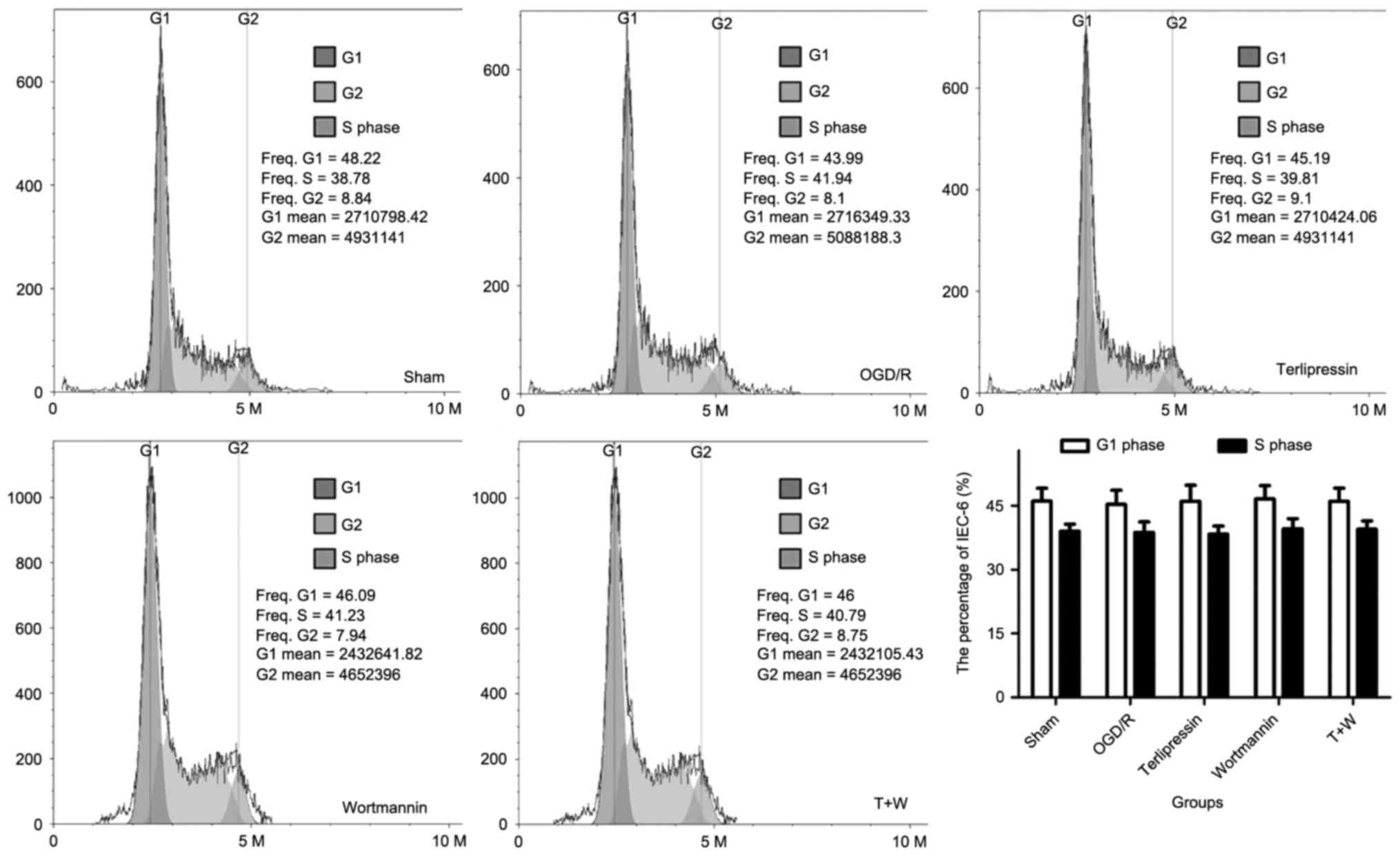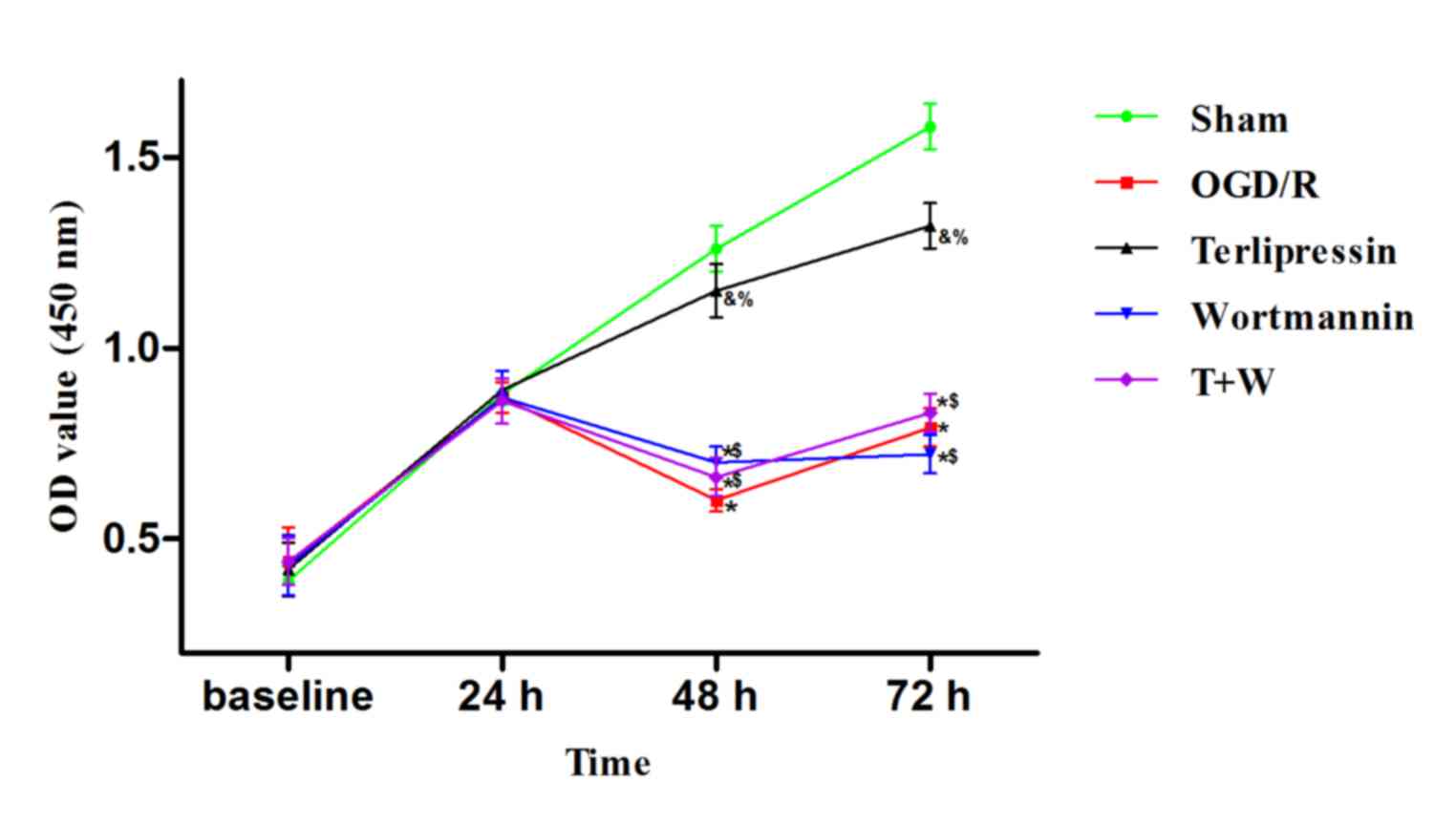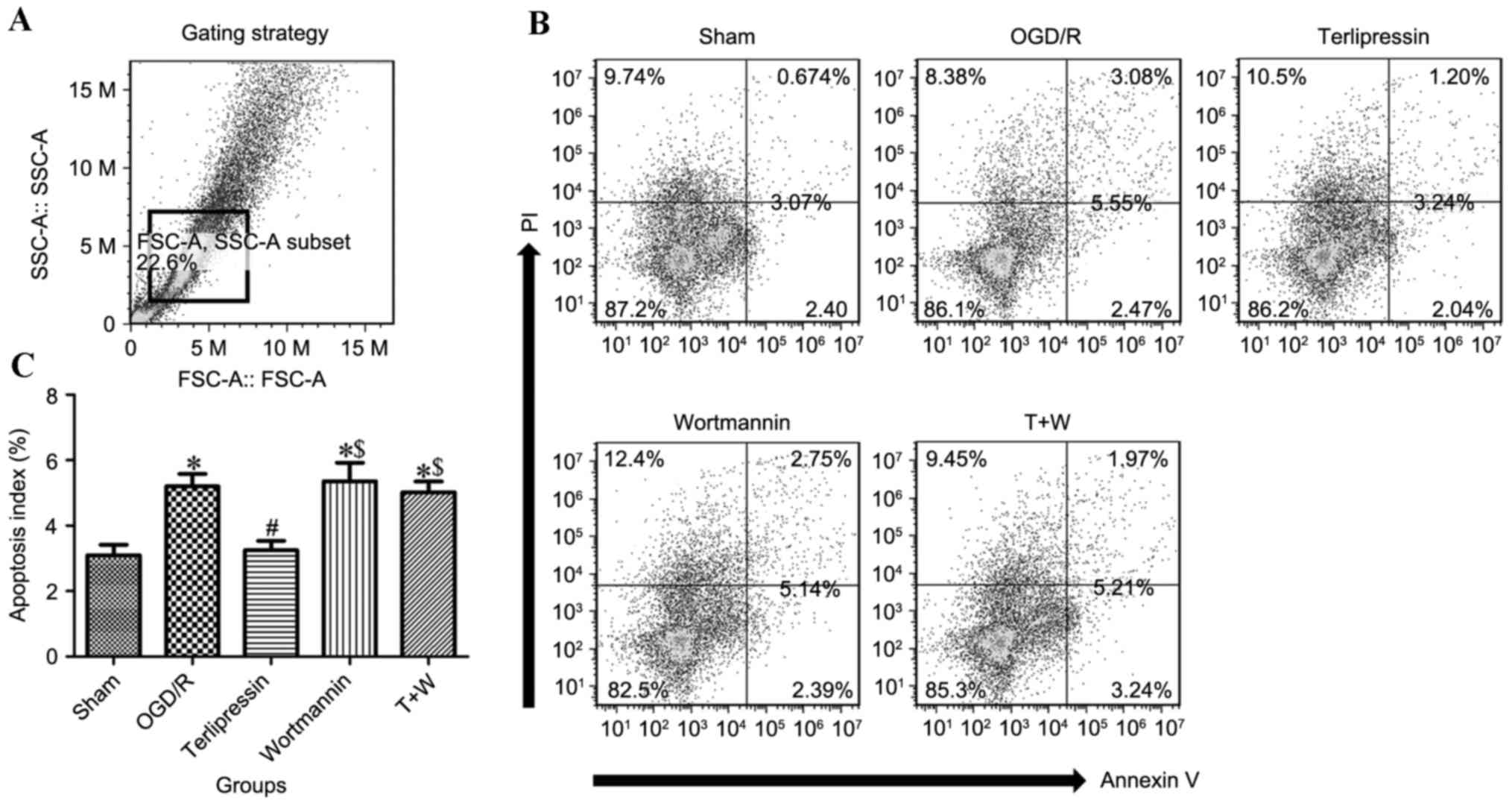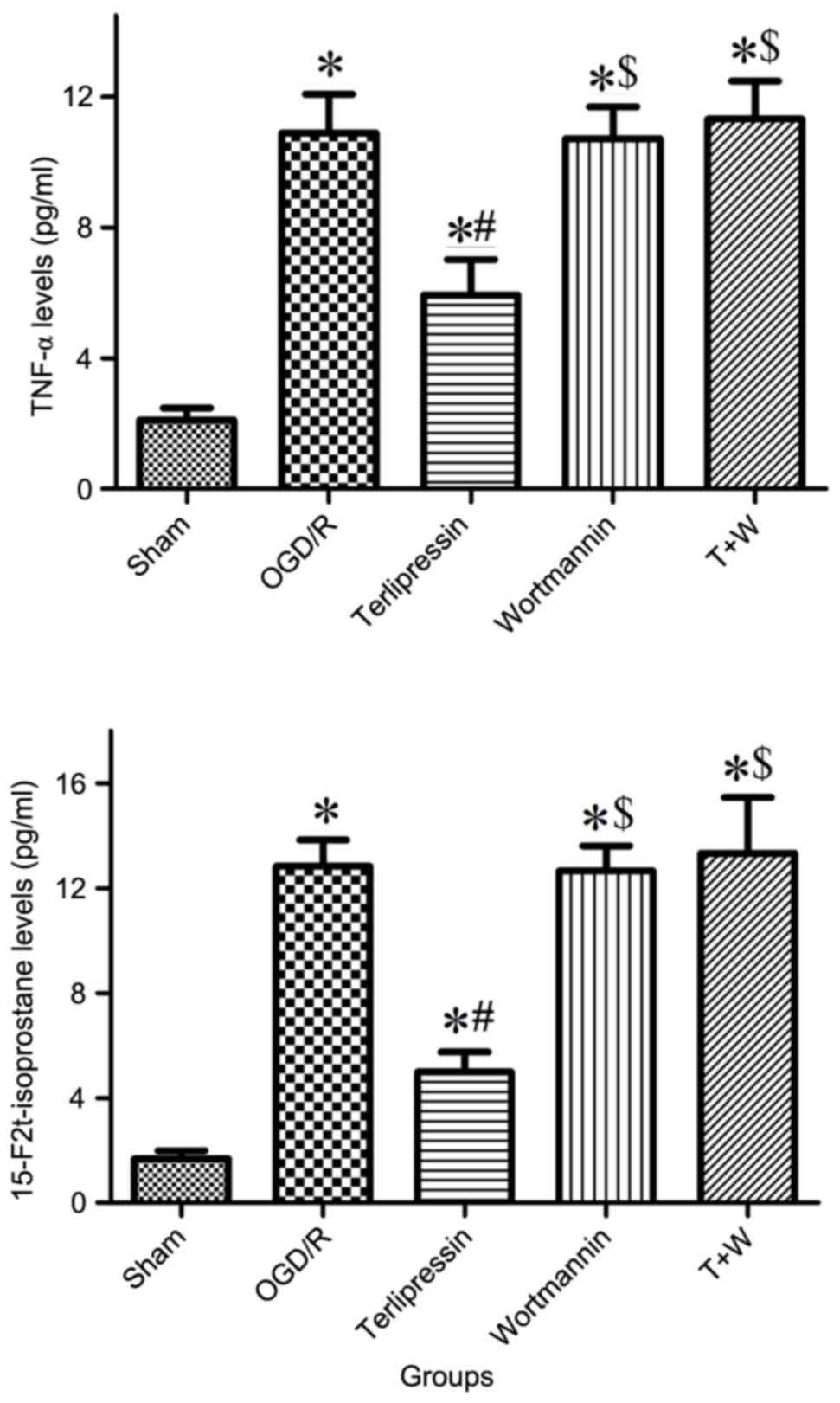|
1
|
Mallick IH, Yang W, Winslet MC and
Seifalian AM: Ischemia-reperfusion injury of the intestine and
protective strategies against injury. Dig Dis Sci. 49:1359–1377.
2004. View Article : Google Scholar : PubMed/NCBI
|
|
2
|
Feinman R, Deitch EA, Watkins AC, Abungu
B, Colorado I, Kannan KB, Sheth SU, Caputo FJ, Lu Q, Ramanathan M,
et al: HIF-1 mediates pathogenic inflammatory responses to
intestinal ischemia-reperfusion injury. Am J Physiol Gastrointest
Liver Physiol. 299:G833–G843. 2010. View Article : Google Scholar : PubMed/NCBI
|
|
3
|
Martin B: Prevention of gastrointestinal
complications in the critically ill patient. AACN Adv Crit Care.
18:158–166. 2007. View Article : Google Scholar : PubMed/NCBI
|
|
4
|
Leone M, Bechis C, Baumstarck K, Ouattara
A, Collange O, Augustin P, Annane D, Arbelot C, Asehnoune K,
Baldési O, et al: Outcome of acute mesenteric ischemia in the
intensive care unit: A retrospective, multicenter study of 780
cases. Intensive Care Med. 41:667–676. 2015. View Article : Google Scholar : PubMed/NCBI
|
|
5
|
Holmes CL and Walley KR: Vasoactive drugs
for vasodilatory shock in ICU. Curr Opin Crit Care. 15:398–402.
2009. View Article : Google Scholar : PubMed/NCBI
|
|
6
|
Dellinger RP, Levy MM, Rhodes A, Annane D,
Gerlach H, Opal SM, Sevransky JE, Sprung CL, Douglas IS, Jaeschke
R, et al: Surviving sepsis campaign: International guidelines for
management of severe sepsis and septic shock: 2012. Crit Care Med.
41:580–637. 2013. View Article : Google Scholar : PubMed/NCBI
|
|
7
|
Knotzer H, Pajk W, Maier S, Ladurner R,
Kleinsasser A, Wenzel V, Dünser MW, Ulmer H and Hasibeder WR:
Arginine vasopressin reduces intestinal oxygen supply and mucosal
tissue oxygen tension. Am J Physiol Heart Circ Physiol.
289:H168–H173. 2005. View Article : Google Scholar : PubMed/NCBI
|
|
8
|
Maier S, Hasibeder W, Pajk W, Hengl C,
Ulmer H, Hausdorfer H, Wurzinger B and Knotzer H:
Arginine-vasopressin attenuates beneficial norepinephrine effect on
jejunal mucosal tissue oxygenation during endotoxinaemia. Br J
Anaesth. 103:691–700. 2009. View Article : Google Scholar : PubMed/NCBI
|
|
9
|
Nygren A, Thorén A and Ricksten SE:
Vasopressin decreases intestinal mucosal perfusion: A clinical
study on cardiac surgery patients in vasodilatory shock. Acta
Anaesthesiol Scand. 53:581–588. 2009. View Article : Google Scholar : PubMed/NCBI
|
|
10
|
Qiu X, Huang Y, Xu J, Qiu H and Yang Y:
Effects of terlipressin on microcirculation of small bowel
mesentery in rats with endotoxic shock. J Surg Res. 188:503–509.
2014. View Article : Google Scholar : PubMed/NCBI
|
|
11
|
Wafa K, Lehmann C, Wagner L, Drzymulski I,
Wegner A and Pavlovic D: Desmopressin improves intestinal
functional capillary density and decreases leukocyte activation in
experimental endotoxemia. Microvasc Res. 97:98–104. 2015.
View Article : Google Scholar : PubMed/NCBI
|
|
12
|
Shen JT, Li YS, Xia ZQ, Wen SH, Yao X,
Yang WJ, Li C and Liu KX: Remifentanil preconditioning protects the
small intestine against ischemia/reperfusion injury via intestinal
δ- and μ-opioid receptors. Surgery. 159:548–559. 2016. View Article : Google Scholar : PubMed/NCBI
|
|
13
|
Milatovic D, Montine TJ and Aschner M:
Measurement of isoprostanes as markers of oxidative stress. Methods
Mol Biol. 758:195–204. 2011. View Article : Google Scholar : PubMed/NCBI
|
|
14
|
Wen SH, Li Y, Li C, Xia ZQ, Liu WF, Zhang
XY, Lei WL, Huang WQ and Liu KX: Ischemic postconditioning during
reperfusion attenuates intestinal injury and mucosal cell apoptosis
by inhibiting JAK/STAT signaling activation. Shock. 38:411–419.
2012. View Article : Google Scholar : PubMed/NCBI
|
|
15
|
Zhang XY, Liu ZM, Wen SH, Li YS, Li Y, Yao
X, Huang WQ and Liu KX: Dexmedetomidine administration before, but
not after, ischemia attenuates intestinal injury induced by
intestinal ischemia-reperfusion in rats. Anesthesiology.
116:1035–1046. 2012. View Article : Google Scholar : PubMed/NCBI
|
|
16
|
Chen J, Liu Y, Soh JW and Aguilera G:
Antiapoptotic effects of vasopressin in the neuronal cell line H32
involve protein kinase Calpha and beta. J Neurocheml. 10:1310–1320.
2009. View Article : Google Scholar
|
|
17
|
Chen J, Volpi S and Aguilera G:
Anti-apoptotic actions of vasopressin in H32 neurons involve MAP
kinase transactivation and Bad phosphorylation. Exp Neurol.
211:529–538. 2008. View Article : Google Scholar : PubMed/NCBI
|
|
18
|
Higashiyama M, Ishikawa S and Saito T,
Nakamura T, Kusaka I, Nagasaka S, Honda K and Saito T: Arginine
vasopressin inhibits apoptosis of rat glomerular mesangial cells
via V1a receptors. Life Sci. 68:1485–1493. 2001. View Article : Google Scholar : PubMed/NCBI
|
|
19
|
Ikeda H, Suzuki Y, Suzuki M, Koike M,
Tamura J, Tong J, Nomura M and Itoh G: Apoptosis is a major mode of
cell death caused by ischaemia and ischaemia/reperfusion injury to
the rat intestinal epithelium. Gut. 42:530–537. 1998. View Article : Google Scholar : PubMed/NCBI
|
|
20
|
Wang G, Chen Z, Zhang F, Jing H, Xu W,
Ning S, Li Z, Liu K, Yao J and Tian X: Blockade of PKCβ protects
against remote organ injury induced by intestinal ischemia and
reperfusion via a p66shc-mediated mitochondrial apoptotic pathway.
Apoptosis. 19:1342–1353. 2014. View Article : Google Scholar : PubMed/NCBI
|
|
21
|
Ozacmak HS, Ozacmak VH, Barut F, Araslı M
and Ucan BH: Pretreatment with mineralocorticoid receptor blocker
reduces intestinal injury induced by ischemia and reperfusion:
Involvement of inhibition of inflammatory response, oxidative
stress, nuclear factor κB, and inducible nitric oxide synthase. J
Surg Res. 191:350–361. 2014. View Article : Google Scholar : PubMed/NCBI
|
|
22
|
Wang WM, Liu Z, Liu AJ, Wang YX, Wang HG,
An D, Heng B, Xie LH, Duan JL and Liu YQ: The zinc ion chelating
agent TPEN attenuates neuronal Death/apoptosis caused by
Hypoxia/ischemia via mediating the pathophysiological cascade
including excitotoxicity, oxidative Stress and inflammation. CNS
Neurosci Ther. 21:708–717. 2015. View Article : Google Scholar : PubMed/NCBI
|
|
23
|
Liu H, Wei X, Kong L, Liu X, Cheng L, Yan
S, Zhang X and Chen L: NOD2 is involved in the inflammatory
response after cerebral ischemia-reperfusion injury and triggers
NADPH oxidase 2-derived reactive oxygen species. Int J Biol Sci.
11:525–535. 2015. View Article : Google Scholar : PubMed/NCBI
|
|
24
|
Zhang YJ, Zhang AQ, Zhao XX, Tian ZL and
Yao L: Nicorandil protects against ischaemia-reperfusion injury in
newborn rat kidney. Pharmacology. 92:245–256. 2013. View Article : Google Scholar : PubMed/NCBI
|
|
25
|
Li J, Zhou J, Zhang D, Song Y, She J and
Bai C: Bone marrow-derived mesenchymal stem cells enhance autophagy
via PI3K/AKT signalling to reduce the severity of
ischaemia/reperfusion-induced lung injury. J Cell Mol Med.
19:2341–2351. 2015. View Article : Google Scholar : PubMed/NCBI
|
|
26
|
Ferrier L, Serradeil-Le Gal C, Schulte AM,
Vasina V, Gaultier E, Schroedel S, Ursino MG, Chaumaz G, Pascal M,
De Ponti F and Bueno L: Proinflammatory role of vasopressin through
V1b receptors in hapten-induced experimental colitis in rodents:
Implication in IBD. Am J Physiol Gastrointest Liver Physiol.
299:G1298–G1307. 2010. View Article : Google Scholar : PubMed/NCBI
|
|
27
|
Boyd JH, Holmes CL, Wang Y, Roberts H and
Walley KR: Vasopressin decreases sepsis-induced pulmonary
inflammation through the V2R. Resuscitation. 79:325–331. 2008.
View Article : Google Scholar : PubMed/NCBI
|
|
28
|
Maybauer MO, Maybauer DM, Enkhbaatar P,
Laporte R, Wiśniewska H, Traber LD, Lin C, Fan J, Hawkins HK, Cox
RA, et al: The selective vasopressin type 1a receptor agonist
selepressin (FE 202158) blocks vascular leak in ovine severe
sepsis*. Crit Care Med. 42:e525–e533. 2014. View Article : Google Scholar : PubMed/NCBI
|
|
29
|
Nazari A, Sadr SS, Faghihi M, Azizi Y,
Hosseini MJ, Mobarra N, Tavakoli A and Imani A: Vasopressin
attenuates ischemia-reperfusion injury via reduction of oxidative
stress and inhibition of mitochondrial permeability transition pore
opening in rat hearts. Eur J Pharmacol. 760:96–102. 2015.
View Article : Google Scholar : PubMed/NCBI
|
|
30
|
Nakatani Y, Chin Y, Hara S and Kudo I:
Immediate prostaglandin E2 synthesis in rat 3Y1 fibroblasts
following vasopressin V1a receptor stimulation. Biochem Biophys Res
Commun. 354:676–680. 2007. View Article : Google Scholar : PubMed/NCBI
|
|
31
|
Miller RL, Sandoval PC, Pisitkun T,
Knepper MA and Hoffert JD: Vasopressin inhibits apoptosis in renal
collecting duct cells. Am J Physiol Renal Physiol. 304:F177–F188.
2013. View Article : Google Scholar : PubMed/NCBI
|
|
32
|
Zhang W, Xing B, Yang L, Shi J and Zhou X:
Icaritin attenuates myocardial ischemia and reperfusion injury via
anti-inflammatory and anti-oxidative stress effects in rats. Am J
Chin Med. 43:1083–1097. 2015. View Article : Google Scholar : PubMed/NCBI
|
|
33
|
Zhang Y, Tian SY, Li YW, Zhang L, Yu JB,
Li J, Chen YY, Wang YX, Liang Y, Zhang XS, et al: Sevoflurane
preconditioning improving cerebral focal ischemia-reperfusion
damage in a rat model via PI3K/Akt signaling pathway. Gene.
569:60–65. 2015. View Article : Google Scholar : PubMed/NCBI
|
|
34
|
Liu X, Zhang C, Qian L, Zhang C, Wu K,
Yang C, Yan D, Wu X and Shi J: NF45 inhibits cardiomyocyte
apoptosis following myocardial ischemia-reperfusion injury. Pathol
Res Pract. 211:955–962. 2015. View Article : Google Scholar : PubMed/NCBI
|















